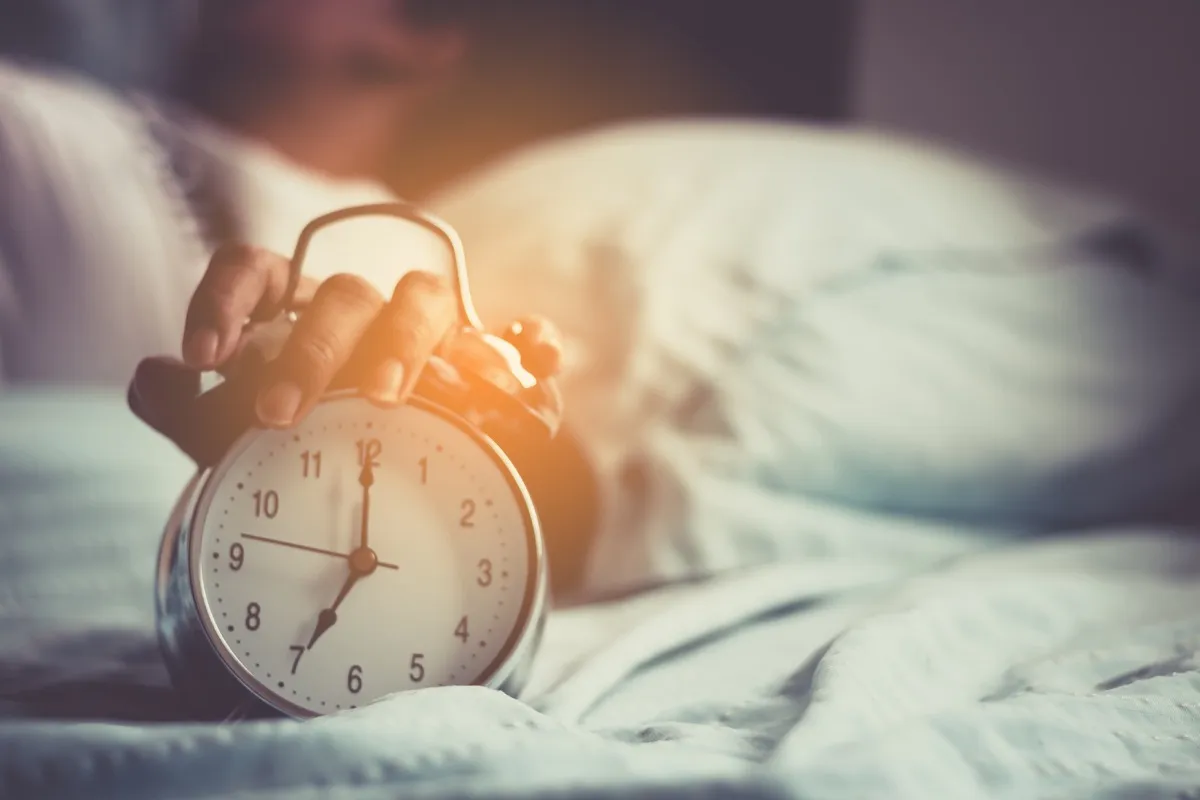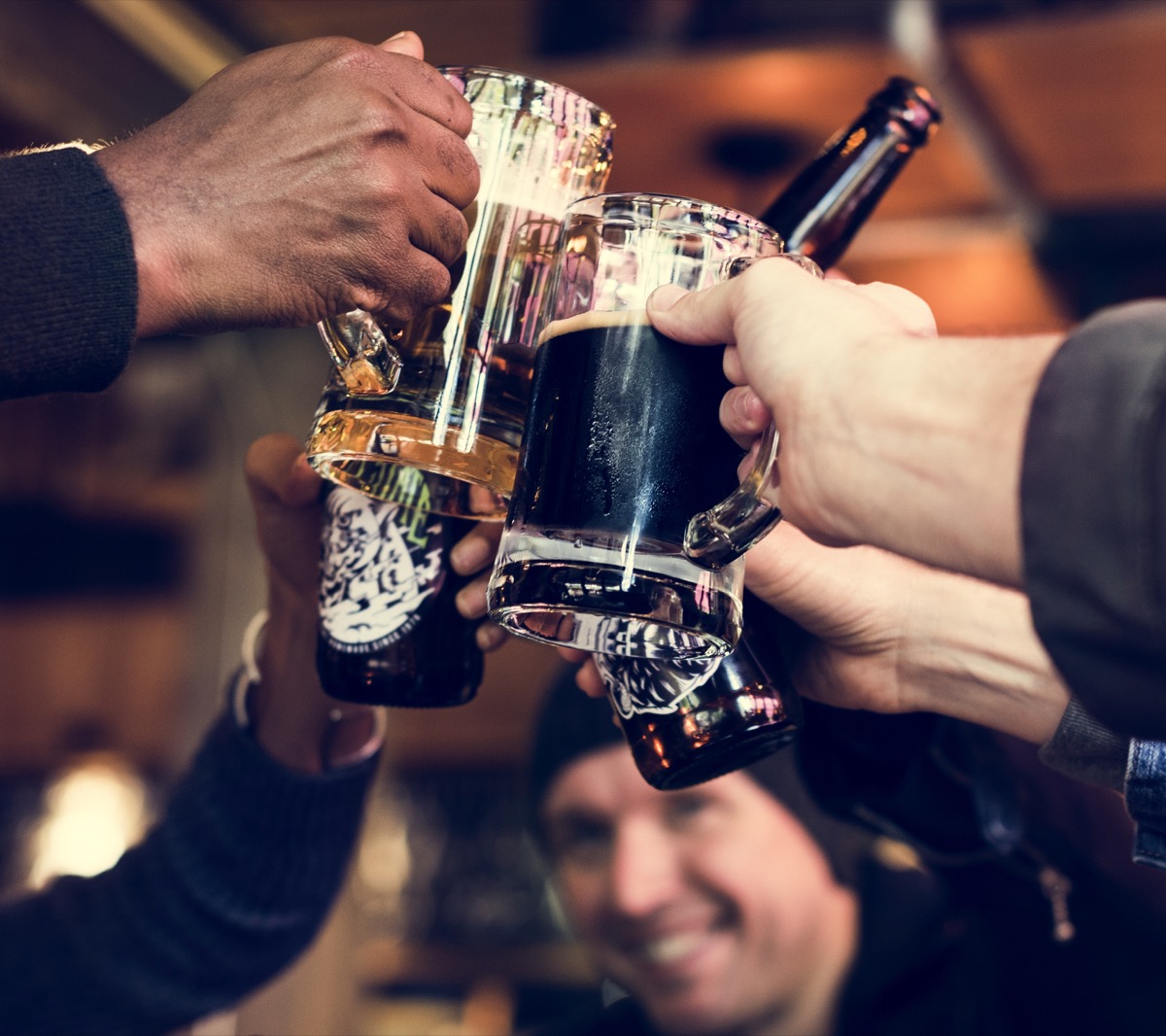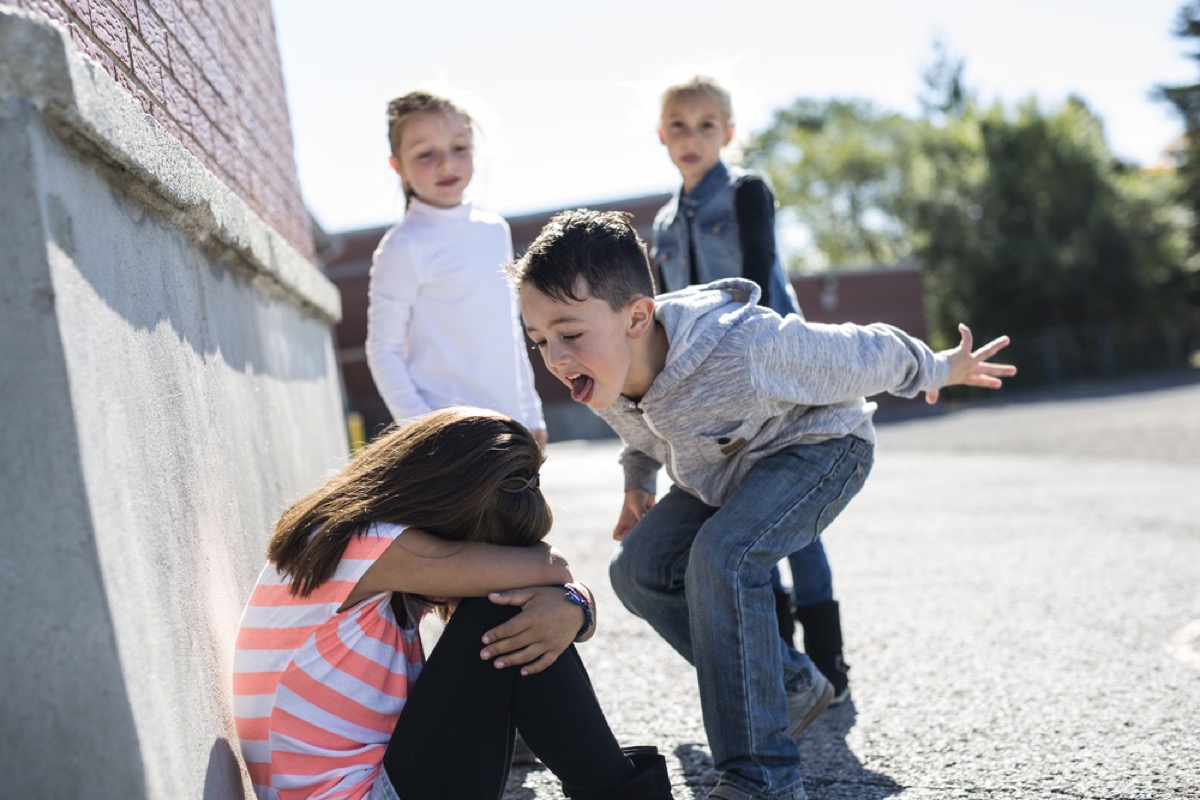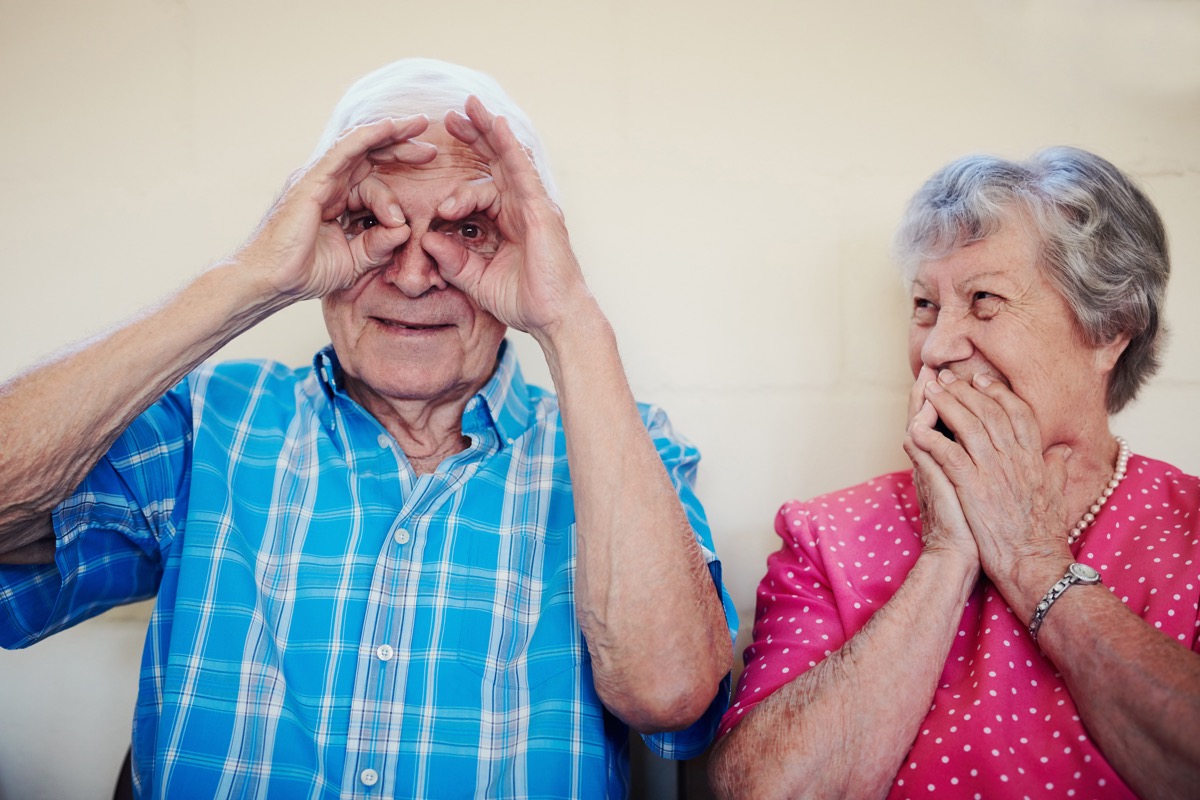Funny Words Added to the Dictionary
The English language is vast, with more than one million words and counting, according to Merriam-Webster. And while we may think we know all the words there are to know, our vocabularies are undoubtedly limited. In fact, there are plenty of silly and funny English words we may not have realized existed at all. For instance, instead of calling someone gullible, why don't we say they're a gobemouche? Or what if, instead of grabbing our umbrella, we grabbed our bumbershoot? While you may know some of these, you might not know what these funny dictionary words really mean—or how to use them. So go ahead and widen your vocabulary with these silly slang words.

Flibbertigibbet is slang derived from the Middle English word flepergebet, which meant "gossip" or "chatterer." This funny English word was used to describe meaningless chatter, and over time, formed into the new word flibbertigibbet which means a "silly, flighty person"—like someone who would engage in meaningless chatter or gossip.

To the average person, the word gobbledygook might sound like gibberish, and they wouldn't be wrong. The slang term, which means "wordy and generally unintelligible jargon" was first used in 1944, according to Merriam-Webster.

If you're a gobemouche, it means you're "a credulous person" who typically believes anything they hear. So, instead of using the word gullible, use this French derived-word instead.

Despite what it sounds like, this funny dictionary word word has nothing to do with licking or splitting. The word lickety-split, first used around 1859 according to Merriam-Webster, means moving "at great speed" or "very quickly."

Skedaddle, which means to "run away" or "scram," was first used in 1859, and has military origins. Per Merriam-Webster, the slang word was first used by Union troops in the Civil War to describe Confederate soldiers who retreated.

Hootenanny was used often decades ago as slang to describe a gathering of folk singers, with regular folk joining in for a jam session. It was first used in the late '20s and gained a lot of traction throughout the '30s.

Widdershins is basically just another way to say "counterclockwise," derived from a German word meaning "to go against." The term developed negative connotations, considered "evil" or "unlucky," but before then, it was a light-hearted word that just meant having a bad hair day.

If you wanted to call someone "drunk" or describe someone heavily under the influence in the '70s, you would say they were blitzed. The slang term was first used in this way during the late '60s, but before that, the word was a war-term that meant "using bombs against."

The world of Hollywood is considered the world of the glitterati. According to Merriam-Webster, the word describes people who are rich and glamorous. It's a combination of the word literati, which means the "intellectual elite," with the word glitter.

Bumfuzzled is American slang to describe a state of "confusion" or "bewilderment." First used in 1873, Merriam-Webster believes the word is an alteration of the earlier word dumfoozled, which also meant "confused."

Gardyloo was first used in Edinburgh "as a warning cry" when people would throw slops from their windows onto the streets. Stretched to be a word of warning for any occasion, the word is believed to come from the French phrase garde à l'eauwhich translates to "attention to the water!"

Taradiddle describes "pretentious nonsense" like a "fib," and Merriam-Webster says stories of the word's origin are also pretentious nonsense. Even though it was included in a 1796 dictionary of colloquial speech, it's clear it was used long before then—although no one knows exactly when or where, despite claims they do.

Getting a brewski with the boys? First used in 1977, this is just an American slang term for "beer," derived from the word brew which describes how beer is made.

If someone is giving you the heebie-jeebies, it means they're giving you the "jitters" or creeping you out. According to Merriam-Webster, this slang term was coined by American cartoonist Billy DeBeck in his comic strip, Barney Google, during the 1920s.

If you have a "bellyache," you can also say you're experiencing collywobbles. The slang term is believed to have come about as a friendlier and simpler way to say cholera morbus, which was once used as a generic term for gastroenteritis.

Is it raining outside? Make sure you grab your bumbershoot! This American slang term came around in the late 1890s as a more whimsical way to describe an umbrella.

If you've ever been told to stop lollygagging around, people are telling you to stop "fooling around." When the slang term originally came about in the early 1900s, it meant fooling around in a sexual sense. Nowadays, however, it typically carries a more general connotation of goofing off and being lazy.

A snollygoster is an American term for someone who is "shrewd" or "unprincipled." Per Merriam-Webster, the word has negative, political origins, and was first used in 19th century America.

Brouhaha sounds like some kind of confused laugh, which is not far from its actual meaning. Describing a "hubbub" or "uproar," the word was used by worshippers whose knowledge of Hebrew was not up-to-par, and described their "noisy confusion of sound" when trying to say the Hebrew phrase bārūkh habbā', meaning "blessed be he who enters."

The word sesquipedalian is exactly what it describes, a long word describing long words. The similar Latin term, sesquipedalis,literally translates to a "foot-and-a-half long." According to Merriam-Webster, Roman poet Horace ironically cautioned young poets from using sesquipedaliswords in their writing, and sesquipedalianwas adopted by English literary critics in the 17th century for criticizing writers who used unnecessarily long words.

Argle-bargle, most commonly used in Britain, describes "a lively argument." And just like the word super duper, this slang term is formed by rhyming reduplication of the word "argle" which means "argue."

The word billingsgate was actually once the name of a gate in London where a fish market was held in the 14th century. With the notoriety of the fishmongers' vulgar language, the term became synonymous with "abusive and coarse language."

Kerfuffle, meaning a "disturbance or commotion" commonly caused by "a dispute or conflict," comes from the 16th century Scottish English word fuffle which meant "to dishevel." The addition of "ker" most likely came from words like kerplunk where the additional three letters were added for emphasis.

Namby-pamby describes something or someone as "weak" or "indecisive." Per Merriam-Webster, the word was coined by 18th century poet Henry Careyas a negative nickname for Ambrose Philips, another poet whose work was seen as too "childish" or "simple."

If you're engaging in skulduggery, you're behaving in an "underhanded or unscrupulous" way, typically meant to trick someone. This funny English word was first used in the mid-1800s, but has no connection to skulls, despite the spelling.

Have you ever met someone that, no matter what, always sees things in a negative light? Well, you could say they're a crepehanger, or a "killjoy." According to Merriam-Webster, "crepe" was a black fabric central to the mourning ritual, so this word came about as an insult to describe the sort of person who "took pleasure in a funeral."

The word smellfungus has nothing to do with smelling or the scents of fungus. Instead, it describes a "captious critic" or someone who often finds faults in something. It was coined in 1768 by novelist Laurence Sterne to name a hypercritical traveler in his book, A Sentimental Journey.

Absquatulateis a slang term from 19th century America, meaning to "depart suddenly" or "abscond." According to Merriam-Webster, the Newbern Sentinel newspaper in North Carolina ran a story about an unpublished dictionary called The Cracker Dictionary in 1830. One of the slang terms included in this unofficial dictionary? Absquatulate.

If you're spreading malarkey, it means you're talking in an "insincere" or "foolish" manner. This funny dictionary word, which was first used in 1924, popped up recently as a slogan by presidential hopeful Joe Biden on his campaign for the Democratic nomination.

Ill-willie sounds pleasant enough, but it's actually the exact opposite. If you call someone ill-willie, you are saying they have an "unfriendly disposition." With an origin in the Scottish language, the word simply adds -ie to the end of the term "ill-will."

Higgledy-piggledy sounds just like something out of a children's book, but it just describes something "in a confused, disordered, or random manner." First used in 1598, it is also a reduplicative expression like argle-bargle.

Fuddy-duddy may sound fun, but its origins are negative. Describing someone as "old-fashioned, unimaginative, or conservative," Merriam-Webster says it was first used in 1904.

In American slang, nincompoop is just another way to describe a "stupid or silly person." While the history and etymology are both unknown, Merriam-Webster dates this funny English word all the way back to the late 1600s.
Source: https://bestlifeonline.com/funny-dictionary-words/
0 Response to "Funny Words Added to the Dictionary"
Post a Comment